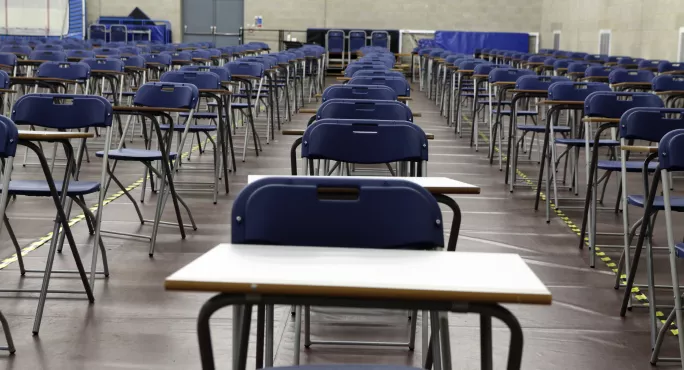Reforms to GCSEs and A levels have not increased exam stress nor contributed to growing pupil anxiety, the exams regulator has said.
The chair of Ofqual, Roger Taylor, denied that anxiety is being driven by “the way exams that are designed”, while the regulator’s chief executive, Sally Collier, said the key issue was “whether students feel supported”.
Both individuals appeared before the House of Commons Education Select Committee this morning.
Read: Most girls say exams are top cause of stress
Advice: Six ways to reduce exam stress for GCSE students
Comment: ‘Parents feel exam stress, too’
Asked about the issue of exam stress, Mr Taylor said: “Any organisation that is involved in education or young people has got to take extremely seriously the evidence of growing levels of anxiety.”
He went on: “We are taking very seriously the suggestion that the structure of exams themselves are contributing to that. However, the evidence does not support the view that it is the way that exams are designed which is the issue.
“Exam stress has consistently been very high, that has been true both before and after changes were made to these qualifications.”
Ofqual’s stance appears to contradict the views of many teachers and pupils. In a poll last August, nine in 10 heads said they thought tougher GCSEs had harmed pupils’ mental health, triggering panic attacks, sleepless nights, self-harm and suicidal thoughts.
Mr Taylor’s comments today were challenged by Labour MP Lucy Powell, who said: “The sheer number now of exams, because it’s all exam-based in a short period of time, would totally stress out the most resilient adult.”
But Mr Taylor said the amount of time spent under exam conditions had not changed since the reforms.
“The actual amount of time spent under exam conditions has not increased because controlled assessment has been taken out of many qualifications,” he said. “In many cases, it wouldn’t be true to say that people are spending more time under exam conditions.”
Ms Collier responded to the questioning by referring to a Tes story from January, which reported the comments of Andreas Schleicher, the director for education and skills at the Organisation for Economic Cooperation and Development (OECD) and the head of the Programme for International Student Assessment (Pisa).
Mr Schleicher said “there’s no correlation across countries between the prevalence of tests in a system and students’ anxiety” and that “student anxiety has a lot more to do with whether students feel themselves supported by their teachers”.
Ms Collier told the MPs: “Of course with the change students are talking more about stress and anxiety, and with the consequences we hear about it.
“And that’s why we’ve stepped into this space, but what he says is the issue is about whether students feel supported in this change.
“When we look at causes the actual test is a feature, but the way that students feel pressurised, what else is going on in the system, they’re important contributory factors.”
Earlier this month, Ofqual produced a guide for students which suggested they could deal with exam anxiety by practising deep breathing and replacing negative thoughts about failure with more positive ones.




